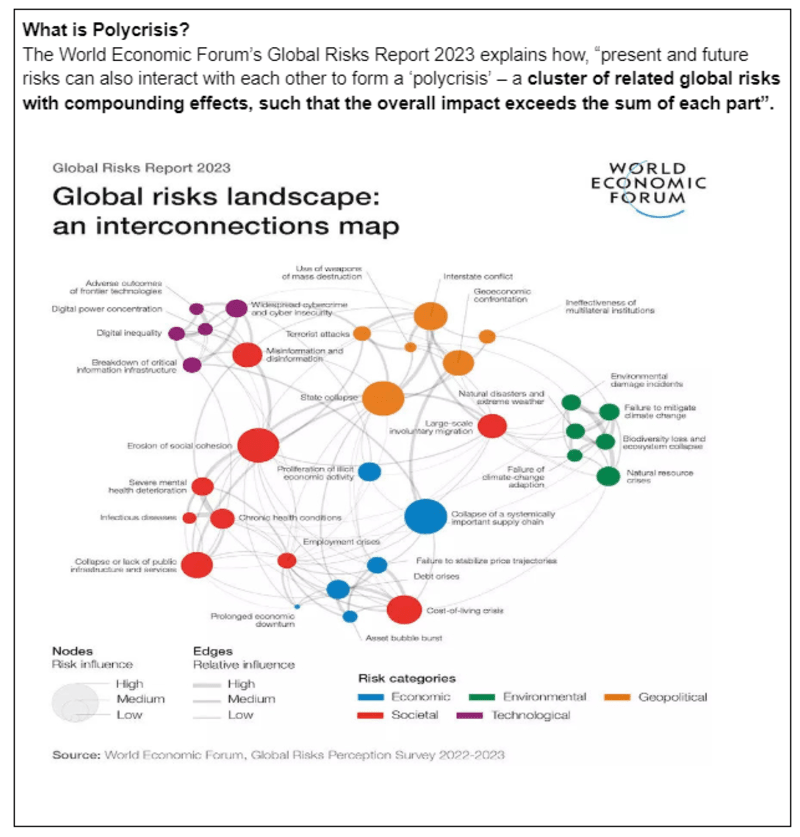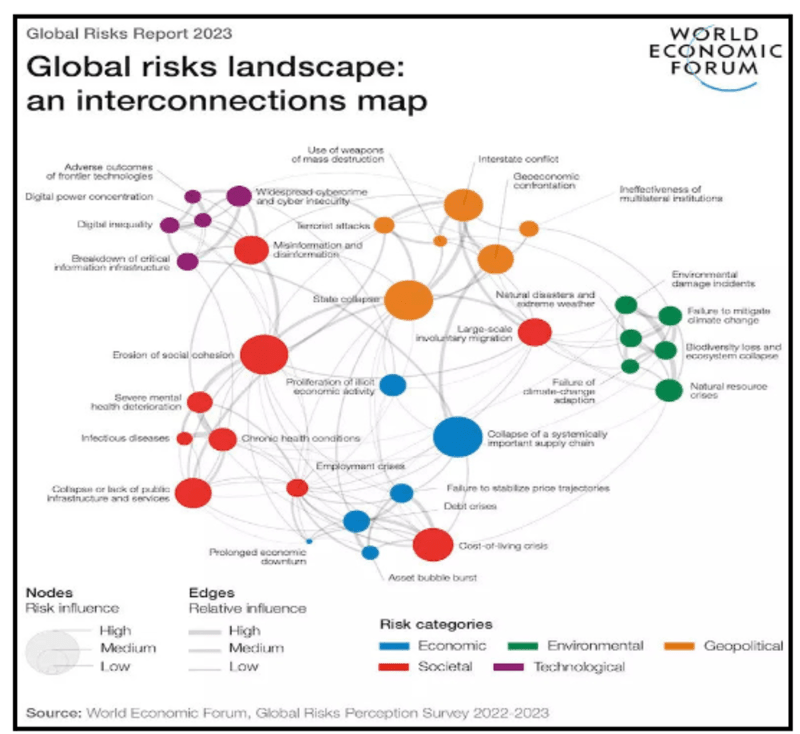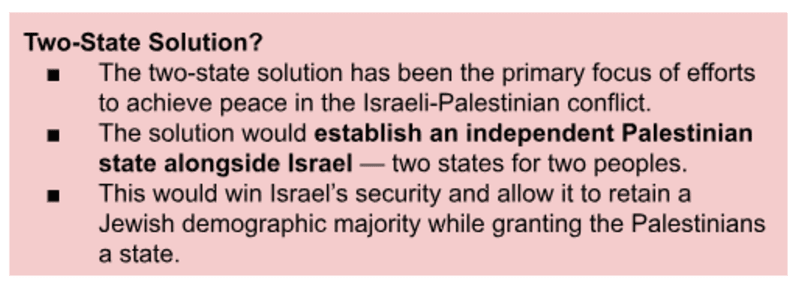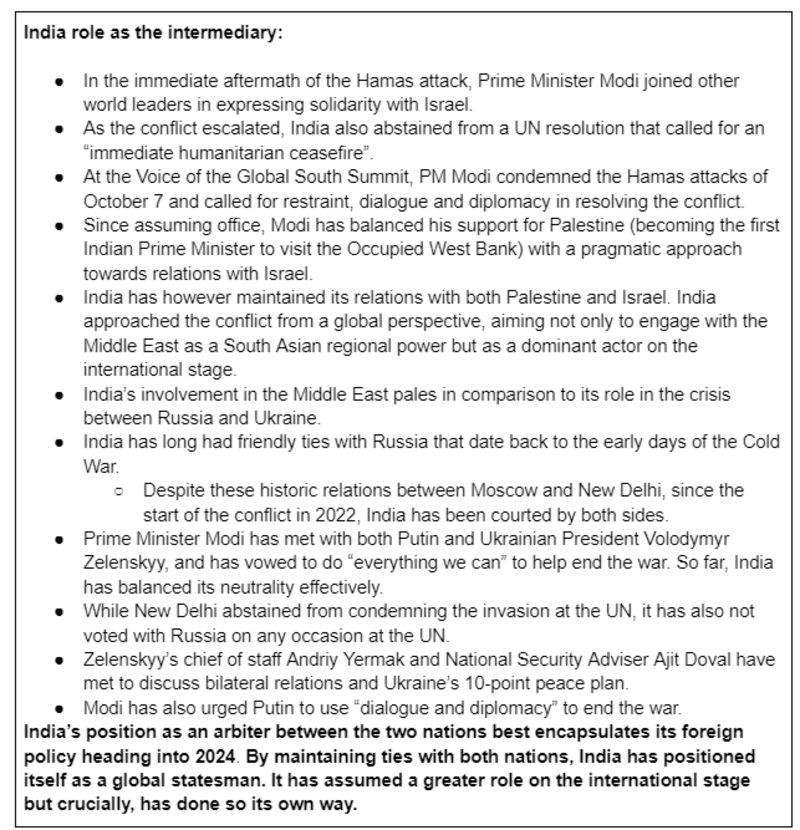Reading the tea leaves for 2024
GS Paper II
News Excerpt:
The past year witnessed a continuation of the poly-crisis, manifested in the COVID-19 pandemic, global economic slowdown, Russia-Ukraine war, sharpening climate challenges, escalating debt burden for developing countries, and the Israel-Hamas conflict.

Analysis of the Present War or Peace situation across the globe:
- At last year’s end, a critical issue was whether the two kinetic conflicts, Ukraine and Gaza, would end in 2024 or continue beyond it.
- The Israeli Prime Minister asserted that the war would continue until Israel achieved all its goals: the release of Israeli hostages, destruction of Hamas, and effective deterrence by ensuring that Gaza no longer posed a threat to Israel.

- No clarity exists about what follows the cessation of violence. The two-state solution has little chance of taking off due to an unbridgeable gap between the two sides and anguish created by the recent hostilities.

- Growing regionalisation of the conflict through attacks on merchant ships by the Yemen-based Houthi militia, probably with Iranian support, has further complicated the situation.
- Nightmares of violence at sea and the rise in prices of goods traded between Europe and Asia could turn out to be real in 2024.
- The future of the Russia-Ukraine war is more difficult to decipher because it is a conflict not only between two nations but also two conflicting systems — the western security system represented by the North Atlantic Treaty Organization (NATO), and Russia.
- The United States is finding it difficult to keep pouring billions of dollars into a war that Ukraine has little hope of winning. The decline in material and financial assistance will erode Ukraine’s ability to continue the war.
- Also, Russia, having failed to prevail over a smaller neighbour, has shown remarkable tenacity to withstand the combined opposition of the West, biting economic sanctions, near-universal condemnation by the United Nations, and internal upheaval.
- Russian President Vladimir Putin now seems to be banking on a possible Trump victory.
- If Mr. Trump enters the White House in January 2025, the war may end then, if not earlier. But if President Joe Biden gets a second term, this war may go on.
- Possible flash points are all in the Indo-Pacific: Taiwan, North Korea, the South China Sea, especially the sharpening feud between China and the Philippines, and the India-China border.
- Their fate will continue to be moulded by the evolving U.S.-China strategic rivalry and the India-China contestation.
- Following the understandings reached at the recent Biden-Xi Jinping summit in California, the U.S. and China have enough motivations to avoid an armed conflict.
- Concerning the Ladakh issue, the protracted impasse is likely to continue in the absence of flexibility on China’s part and the imperatives for India’s resoluteness.
Positive Implications for India:
- U.S.-India relations: Political convergence, enhancing defence cooperation, and the expanding contours of the U.S.-India initiative on Critical and Emerging Technology (iCET) have been notable highlights.
- The Khalistani issue and repercussions of the Pannun/Nijjar saga, might cast a dark shadow.
- Cooperation with the European Union (EU) and bilateral relations with its key member-states.
- French President Emmanuel Macron’s visit as the chief guest at the Republic Day celebrations.
- Focus on special relations forged with Japan and Australia and further consolidation of the Quad (Australia, India, Japan, the U.S.).
- Russia: Although both Delhi and Moscow skipped the annual summit for two years, but Mr. Putin’s public praise of the Indian Prime Minister and the tangible outcomes of the External Affairs Minister’s recent visit to Moscow indicate stability and resilience in this ‘time-tested’ relationship.
- India’s G-20 presidency: It resulted in the adoption of the New Delhi Leaders’ Declaration with “100% consensus”. However, success in implementing the summit decisions is now largely dependent on the next two presidencies, Brazil and South Africa. India will no doubt exert as much influence and determination as it can to secure optimal implementation.
Challenges for India:
- China: The Chinese footprint continues to expand in South Asia, once India’s backyard, as shown by recent developments in the Maldives, Sri Lanka, Nepal, and Bhutan. Beijing’s ‘intrusion’ is fuelled by its economic largesse and strategic vision that aims to keep India tied down to its neighbourhood.
- Indian diplomacy will grapple with both old and novel issues ranging from
- Climate change.
-
- Negotiations for various free trade agreements.
-
- Promoting abroad India’s expertise in digital technology.
-
- Readiness to accord a place of priority to Artificial Intelligence (AI) in the nation’s economic development.
- Multilateral groupings such as G-20, BRICS, the Shanghai Cooperation Organisation , the Indian Ocean Rim Association, and the Bay of Bengal Initiative for Multi-Sectoral Technical and Economic Cooperation, and the need to push United Nations Security Council reform will demand serious attention.
- The Ministry of External Affairs will have to project to the world the forthcoming parliamentary elections as a major milestone in the development of the world’s largest functioning democracy.
Beyond Editorial:

Way Forward to the Indian Diplomacy:
- Global Politics: India could shape the future of global politics by utilizing its strategic location and growing economic power. Eg- SCO presidency and hosting of the Voice of the Global South.
- Negotiating Platform: India can contribute to international peace and security by providing an unique platform for the nations, facilitating dialogue and demonstrating its commitment. Eg- Russia, the Western nations, and the US were in conversation during the Raisina Dialogue and during the G20 meeting.
- India along with Africa can lead the Global Governance Reforms:There is widespread concern over the UNSC's incapacity to resolve conflicts such as Israel-Hamas, Azerbaijan and Armenia's dispute, Ukraine-Russia conflict, and China's aggression on Taiwan.
- Chinese Problem: India can use the Quad grouping and a closer alignment with the US on the same strategic path to counterbalance China’s rise in a friendly, gentle, and non-hostile way.
Prelims PYQ
Q. The term "two-state solution" is sometimes mentioned in the news in the context of the affairs of (UPSC 2018)
(a) China
(b) Israel
(c) Iraq
(d) Yemen
Mains PYQ
Q. “India’s relations with Israel have, of late, acquired a depth and diversity, which cannot be rolled back.” Discuss. ( UPSC 2018)


